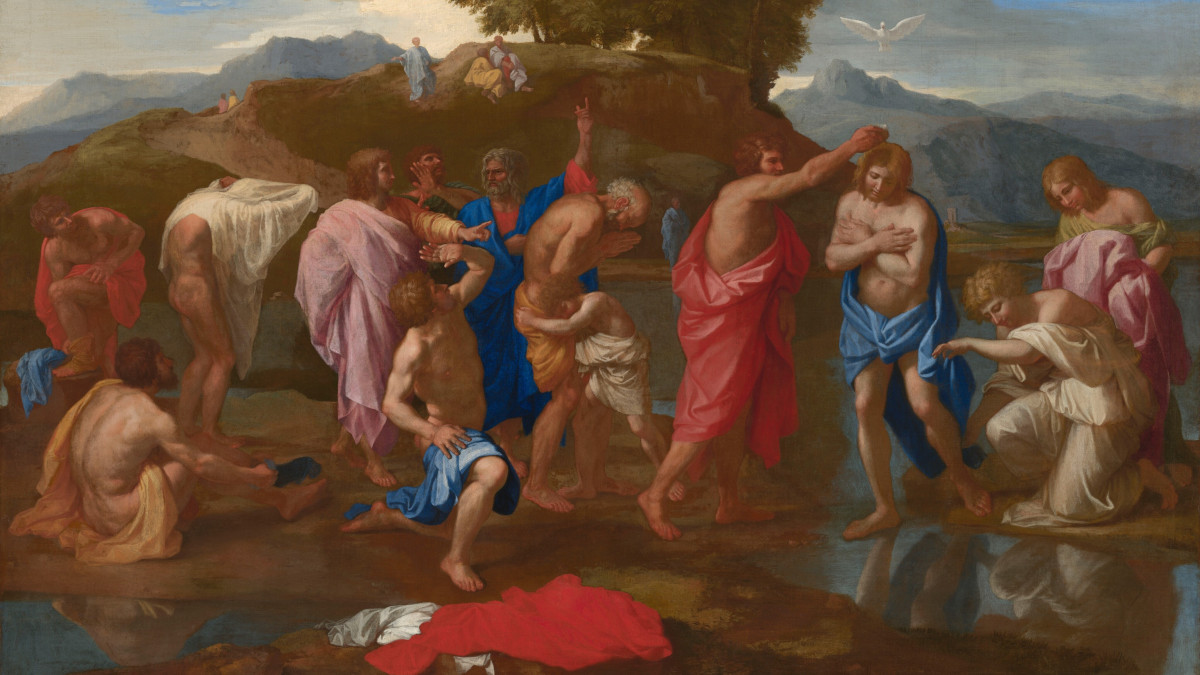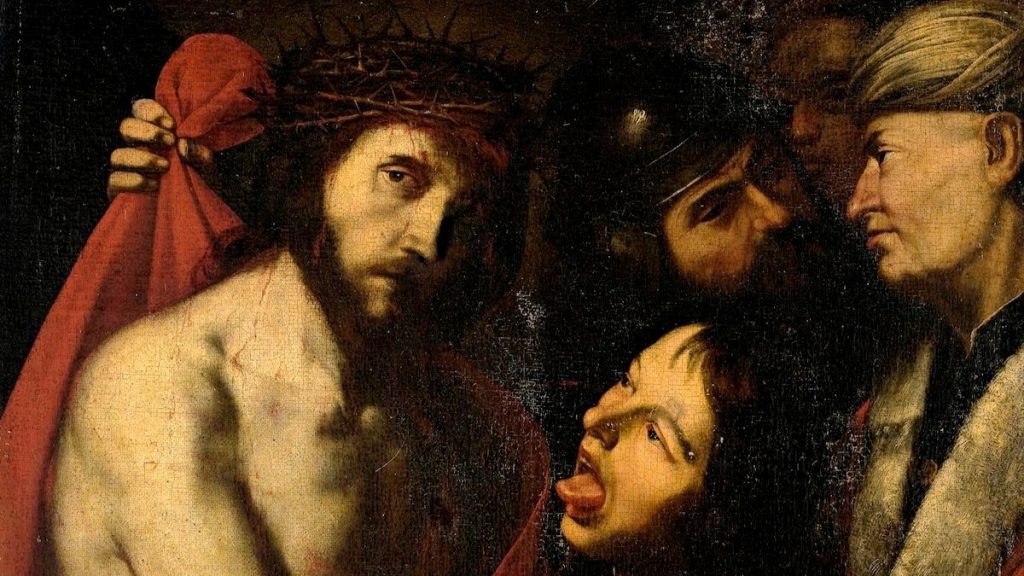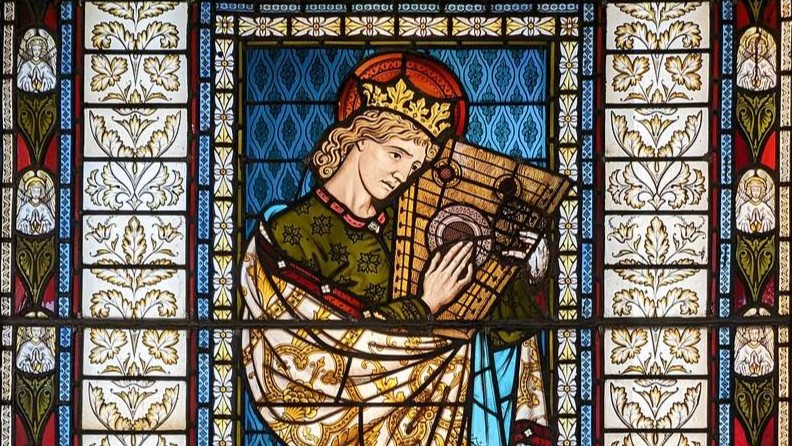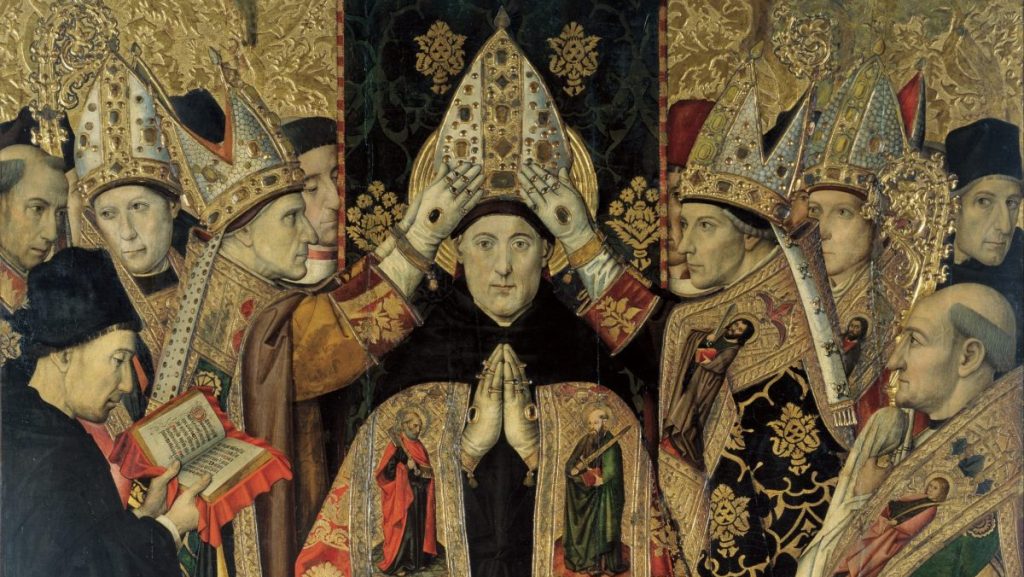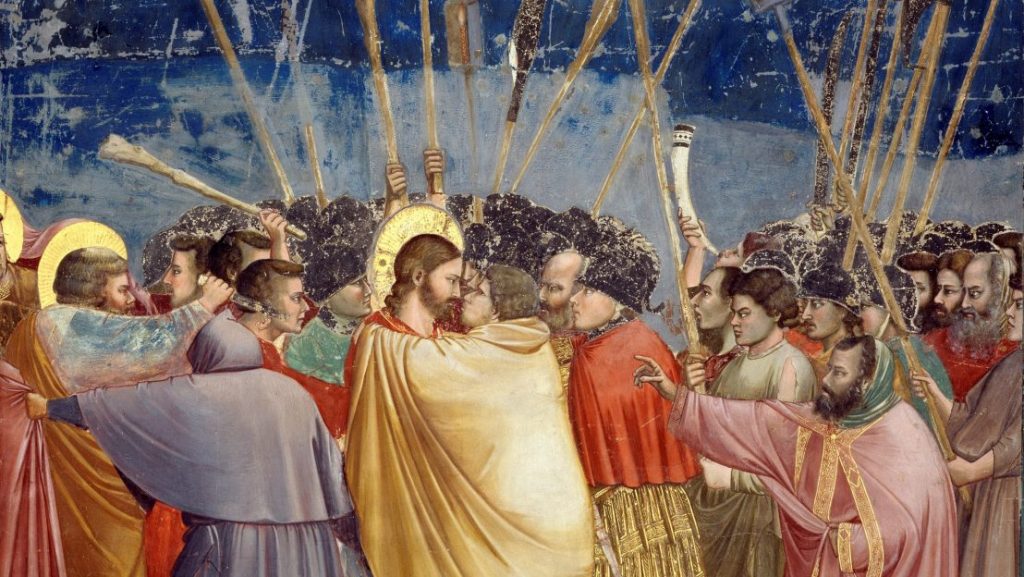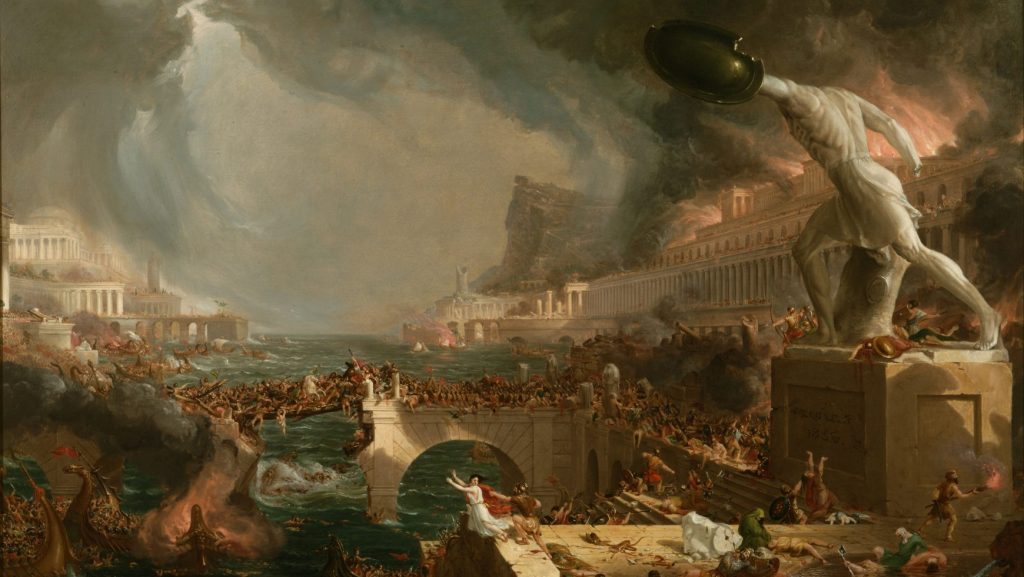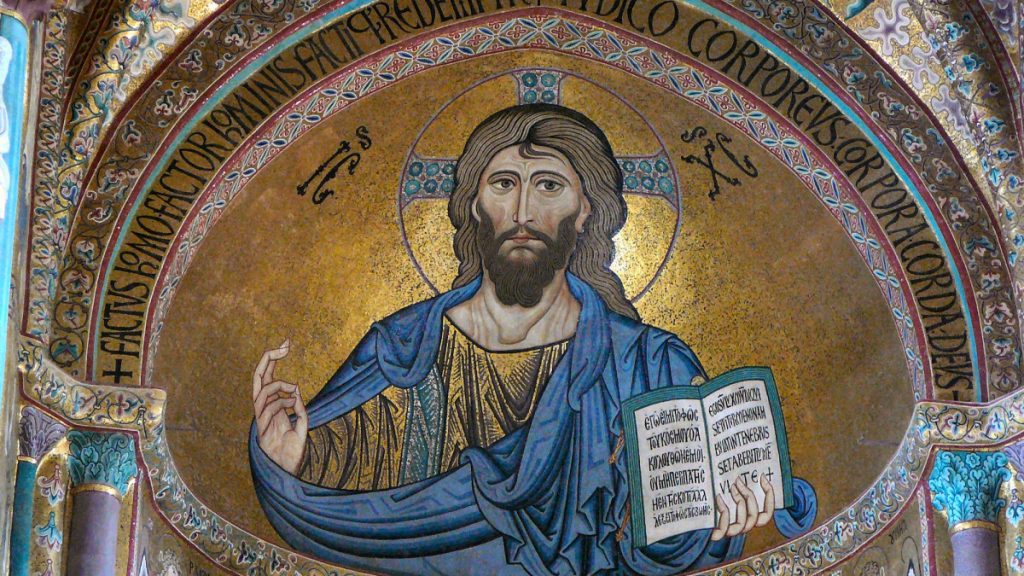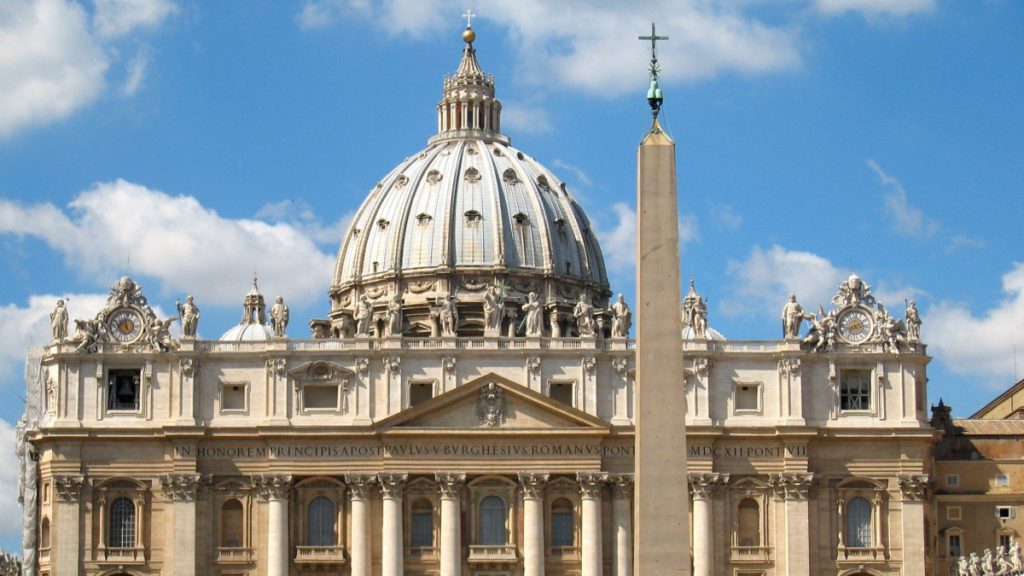The Role of Baptism in My Conversion
Baptism was one of the topics that did the most to convert me to the Catholic Faith. After all, in the Great Commission, it is one of the primary actions Christ commands the Apostles to do (Matt. 28:18-20):
18 And Jesus came and said to them, “All authority in heaven and on earth has been given to me. 19 Go therefore and make disciples of all nations, baptizing them in the name of the Father and of the Son and of the Holy Spirit, 20 teaching them to observe all that I have commanded you; and lo, I am with you always, to the close of the age.”
For Christ, baptism was inherently connected with sharing the Gospel. Indeed, by implication, it is also an essential part of teaching the nations “to observe all that I have commanded you.”
Therefore, to be a Christian, one must understand what baptism is. Without it, the Great Commission cannot be undertaken. If you get it wrong on baptism, you get something fundamentally wrong about the Great Commission.
As a protestant, I grew up believing baptism was primarily a symbol. Various protestant sects differed on the nature of this symbol, what it did, what it mean, what it effected.
But what I discovered when I read the Church Fathers was they most definitely did not disagree on what baptism was, or what it did. In fact, in every single instance, the Church Fathers unanimously asserted their belief in baptismal regeneration—a doctrine affirmed by the Catholic Church, but denied by virtually all protestant sects (see Quote Archive | The Sacrament of Baptism).
The Protestant Departure from Timeless Christian Belief on Baptism
One of the key moments in my conversion, therefore, was recognizing that many protestants had departed from fifteen centuries of consistent, constant, ubiquitous, and unanimous Christian belief on a topic that was essential to the Gospel and the Great Commission.
Without presuming to get into the weeds on the various protestant positions on baptism (some Lutherans and Anglicans are somewhat closer to the Catholic position), what, at its core, divides those who believe in baptismal regeneration from those who do not? Very simply, it is this: whether or not baptism effects, or merely testifies to a new spiritual reality. To speak in terms of being “born again,” the issue is whether we are born again by baptism (baptismal regeneration), or born again (apart from baptism) and therefore receive baptism.
Growing up in a variety of protestant denominations, none of them affirmed baptismal regeneration. Such an idea was anathema for one simple reason: if baptismal regeneration is true, then the protestant doctrine of sola fide (“faith alone”) would seem to be false. After all, it was fundamental to sola fide that we could do nothing to contribute to our own salvation. If baptism was the means by which we were saved, then it would seem we could do something to contribute to our own salvation—namely, get baptized. As I discovered, maintaining sole fide was the key reason protestants denied baptismal regeneration, despite the fact that it was universally held by Christians for fifteen centuries before they arrived on the scene.
But while they agreed on what they denied, protestants could never agree on what they affirmed about baptism. From the very beginning of the protestant revolt, they not only separated from the Catholic Church, but from one another. With no one to act as an ultimate arbiter of doctrinal conflict, their denial of Catholic dogma was but a prelude to an ever-increasing number of contradictory doctrinal affirmations. Nowhere was this as obvious as the issue of baptism, over which some protestants (Lutherans, Calvinists, etc.) were even willing to kill other protestants (Anabaptists, etc.).
While the killing has stopped, the debates among protestants have not. Throughout my childhood and early adulthood, I was constantly surrounded with arguments about “believer’s baptism” vs. “covenantal baptism”; pedobaptism or adult/age of reason baptism; baptism as mere symbol vs. baptism as a covenantal sign/seal (or some combination thereof); etc.
On this most basic, foundational, and essential issue of the Christian life, none of the sects to which I belonged or looked for answers could agree with one another. It turned out that those who claimed to have “rediscovered the Gospel” after the darkness of Roman Catholicism couldn’t even agree on the very thing Christ commanded Christians to do in the Great Commission. This could hardly be explained away as a “non-essential” issue. Here are some of the varying doctrines on baptism I ran into from figures I used to consult on theological questions: Dr. Michael Brown (charismatic, evangelical, messianic Jew); John Piper (evangelical baptist); John MacArthur (evangelical); and R.C. Sproul (reformed presbyterian, pro-pedobaptism); among many others.
But as I dug deeper, it became obvious why protestants had disagreed so vociferously on baptism since the days of Martin Luther: they were attempting to maintain sola fide, “faith alone”—which necessarily implies a more nominal approach to baptism as a signifier of salvation, but not its cause—alongside the very plain words on baptismal regeneration in Scripture.
For example, some presbyterians baptize their babies. But baptists object on the ground that babies cannot possess “saving faith,” and therefore it makes no sense to baptize them, since baptism is a public symbol and testimony of one having such faith. Presbyterians (with some Lutherans and Anglicans, etc.) demur by citing Scripture itself, which often speaks of baptism in a covenantal context, and even somehow being connected to circumcision. This apparent connection (see, for example, Col. 2:11-14) was often used by such denominations to justify infant baptism, for circumcision, like baptism (they argued) was used on infants as a covenantal sign. “But,” say the baptists and many evangelical sects, “if baptism signifies a spiritual reality that has already taken place by the person becoming a believer, how can children who haven’t believed anything receive it? How does this square with ‘faith alone’?”
In stark contrast, the Church Fathers were absolutely unanimous on the doctrine of baptism across so many centuries and so many lands because they did not believe in salvation by “faith alone,” and thus had no reason to doubt that baptism truly regenerated and cleansed the new believer. Because they did not need to accommodate their doctrine of baptism to a false doctrine of salvation, they maintained the purity of both.
Even more troubling for me was our inability, as protestants, to ultimately resolve the debate on this most fundamental of issues. We just agreed to disagree. But the fact that we were doing so over something as fundamental and foundational as baptism concerned me. “How could we not agree on something as important as this?” I often asked myself. As with so many issues over so many years, I just kept thinking smarter people had, or would eventually figure it all out. I never ended up finding them.
That all changed when I began reading the Church Fathers in the summer of 2017. What I found in their writings was completely different. In short, every single Church Father I read affirmed baptismal regeneration, which was the teaching of the Catholic Church. They were unanimous, East and West, century after century, from Persia and Africa to Italy and Great Britain. They all affirmed it was necessary for salvation, and everywhere equated baptism with cleansing/remission of sins (the language of the earliest creeds); receiving the Holy Spirit; being regenerated; being adopted; being “saved”; being “born again” (by “water and Spirit,” as Christ said); etc. They ubiquitously spoke of the “laver of regeneration,” and “the sacred font” in which one was “reborn.” In short, in their effort to preserve sola fide, virtually every term the protestant sects affirmed to be metaphors for what baptism merely signified, the Church Fathers affirmed were realities that baptism effected. And unlike the protestant sects who, from the very beginning, could not agree on baptism, the Church Fathers were unanimous on baptismal regeneration. Even John Calvin, who arguably held the highest view of baptism in the “reformed” camp, could only say that it was a sign of our having been regenerated by faith—but baptism itself did not cause this regeneration1:
Peter also says that “baptism also doth now save us” (1 Pet. 3:21). For he did not mean to intimate that our ablution and salvation are perfected by water, or that water possesses in itself the virtue of purifying, regenerating, and renewing; nor does he mean that it is the cause of salvation, but only that the knowledge and certainty of such gifts are perceived in this sacrament…Who, then, can say that we are cleansed by that water which certainly attests that the blood of Christ is our true and only laver?
This example from Calvin is not only full of misrepresentations, but false dichotomies. For example, the Catholic Church has never claimed “that water possesses in itself the virtue of purifying, regenerating, and renewing.” On the contrary, it is water and the Word (Christ Himself), bestowed by the Spirit, that has the power to regenerate in baptism, per Christ’s explicit words: “Truly, truly, I say to you, unless one is born of water and the Spirit, he cannot enter the kingdom of God.” (John 3:5) Similarly, the Catholic Church not only does not deny, but radically affirms that we are only saved because of the blood of Christ, and it alone is the source of the saving power of baptism, by which the redemption won by that blood is applied to our souls. Thus, Calvin’s attempt to situate the blood of Christ and the sacrament of baptism in two mutually exclusive categories not only misrepresents Catholic teaching, but is itself a false dichotomy which finds no support in Scripture. In every place and ancient generation, the Fathers of the ancient Church rise up to condemn him. “Remove not the ancient landmark which your fathers have set” (Prov. 22:28).
But perhaps the most profound reality the Church Fathers made clear to me was baptism’s connection with circumcision, which, as I mentioned, was hotly debated among protestants. In short, those protestants who affirmed baptism’s connection to circumcision did so because, like circumcision, they saw it as a covenantal sign, signifying the joining of a covenantal community. In this sense, however, I realized that their theology of Christian baptism didn’t much differ from the theology of Jewish circumcision. As circumcision symbolized one’s initiation into the Old Covenant, these protestants would argue baptism likewise symbolizes one’s initiation into the New Covenant. But at the end of the day, both symbols were physical acts that of themselves did not affect anything in the soul, but merely signified their respective covenants. The superiority of baptism was entirely due to the fact that it signified a newer and better covenant. Other than that, of itself, it remained as merely physical as circumcision in protestant theology.
While the Church Fathers affirmed that circumcision and baptism signified their respective covenants, they also speak of their much deeper connection. Baptism, they said, wasn’t distinguished from circumcision merely because they signified different covenants (important as this is), but because contrary to circumcision, which only effected a physical change to the body, baptism effected a spiritual change to the soul, thus fulfilling the prophet Jeremiah’s prediction of a New Covenant in which God would “put my law within them, and I will write it upon their hearts” (Jer. 31:33).
Circumcision, the Fathers argued, merely altered one’s body. But this was only a type pointing to a far greater reality that was fulfilled in baptism, which literally cleanses us, remits our sins, regenerates us, makes us a new creature, born again, and transforms our souls into a Temple of the Holy Spirit. Circumcision of the flesh could never do that—but the “circumcision of Christ” (Col. 2:11) could, for it was “a circumcision made without hands.” Circumcision allowed a Jew to enter the precincts of the Temple made with human hands. Baptism quite literally transforms our souls into a Temple not made with human hands, into which God Himself may come and dwell. Baptism, the Fathers argued, is therefore different than circumcision not in a merely nominal way (what it signifies), but in a real way (what it effects). In other words, the very thing protestants most vociferously denied—that baptism truly effected salvation—was the very thing the Fathers said was most excellent about it! The Council of Nicaea really meant it when it declared “I confess one baptism for the forgiveness of sins” in its creed. Not symbolizing the forgiveness of sins, or imparting, in Calvin’s words, merely “the knowledge and certainty of such gifts.” But one baptism for the forgiveness of sins.
At the end of the day, the issue of baptism was truly a turning point in my conversion to Catholicism. The Fathers’ unanimous belief in baptismal regeneration made something disturbingly clear to me: if protestantism was right, then all Christians that came before them were wrong on a central issue of the Gospel, on the Great Commission itself. This raised the disturbing question of whether they could be considered Christian at all. After all, protestants today often claim they will have communion with anyone who gets the core of “the gospel” right. But the Fathers, in their view, clearly got it horribly wrong on baptism. Therefore, most protestants could not have communion with virtually any Christian who came before them.
A line of reasoning presented itself to my mind:
- Person A claims Doctrine X is essential to “the gospel.”
- Doctrine X was totally absent throughout Christian history until proposed by Person A.
Therefore, there are only two possible conclusions:
- Virtually all Christians were ignorant of an essential component of the Gospel for the vast majority of Church history—virtually from day one—and therefore, at best, were not truly Christian (and thus quite possibly damned); or
- Person A was wrong in proposing Doctrine X.
Those are the choices. On an absolutely and undeniably core issue, either the first protestants were wrong, or all the Christians preceding them were.
Once I faced this unavoidable and uncomfortable reality, I finally perceived the truth: the Catholic Church had been right all along. Its position made much more sense of the Scriptural data, and had been held by Christians from the very beginning. “When the Spirit of truth comes, he will guide you into all the truth…He will glorify me, for he will take what is mine and declare it to you” (John 16:13, 14). So said Our Lord to His Apostles. But how could this be true if all Christians had gotten something as basic as baptism so wrong? It made no sense.
Footnotes
- John Calvin, Institutes of the Christian Religion (Book Four, Ch. 15, §2); John Calvin, Henry Beveridge, trans., Institutes of the Christian Religion (Peabody, MA: Hendrickson Publishers, 2009), 859-60. ↩︎
